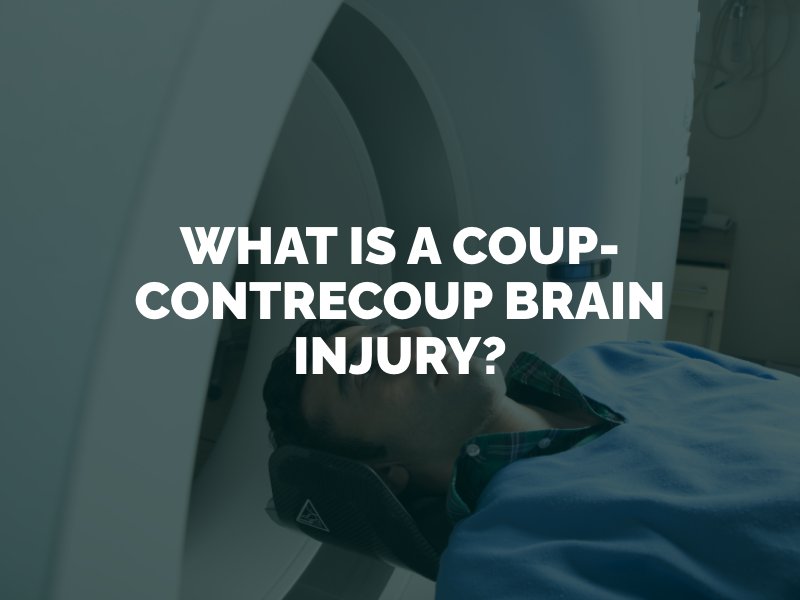If you get involved in an accident, you could suffer a serious head or brain injury. One possibility is a coup-contrecoup brain injury, where two sides of the brain get injured by the same blow or jolt to the head. It is a serious pair of injuries that can have lasting ramifications for a victim. Common symptoms include chronic headaches or migraines, memory issues, and emotional effects.

“Coup-contrecoup” is a French term, where coup means “blow” and contrecoup means “counterblow.” A coup-contrecoup brain injury is actually two separate brain injuries that occur in the same incident. The first or initial injury – the coup – takes place directly at the point of impact. The contrecoup injury affects the exact opposite side of the brain, from the brain bouncing forward and then backward inside of the skull.
A coup-contrecoup brain injury can occur when a blow or jolt to the head is severe enough to cause the brain to slam against the inside of the skull, despite being surrounded by protective cerebrospinal fluid. This is also known as a closed head injury, as it injures the brain without penetrating or “opening” the skull. A coup-contrecoup brain injury can cause serious harm, as two different parts of the brain can both suffer damage.
Since coup-contrecoup brain injuries can affect any two regions of the brain, the symptoms experienced can vary significantly. Individuals can suffer a wide range of effects depending on which parts of the brain were injured. General symptoms can include:
If you strike your head against something in any type of accident, see a doctor about a potential brain injury. You could be diagnosed with a coup-contrecoup brain injury if two sides of the brain were injured in the same incident.
Most coup-contrecoup brain injuries occur when the head or skull slams against a stationary object, such as the steering wheel in a car accident.
If you or a loved one has experienced a coup-contrecoup brain injury in a car accident, it is crucial to seek legal assistance from a Denver car accident attorney from Fang Accident Lawyers. They can provide essential services that include insurance negotiations, expert legal advice, and courtroom representation.
Many different types of accidents can result in coup and contrecoup injuries, with motor vehicle collisions at the top of the list. Other common causes are falls, assaults or acts of violence, and work accidents. The faster and more aggressive the incident, the higher the likelihood of coup-contrecoup brain injuries.
Treatments for a coup-contrecoup brain injury depend on the type and location of the damage. A patient’s treatment plan is personalized for the individual. A doctor will closely monitor a patient with a head injury to look for any new or worsening symptoms and adjust the treatment regime as needed. Some of the potential treatment options available include physical therapy, medications, and at-home recovery methods such as rest and avoiding stress.
Most coup and contrecoup brain injuries heal completely. However, some patients experience lasting or long-term effects. These effects can be physical, cognitive, behavioral or emotional. Victims may suffer long-term disabilities, including loss of motor function and control. They may have to depend on others and miss out on income-earning opportunities. It is important not to underestimate the severity of this type of injury or the losses you may suffer because of it.
If you or a loved one has been diagnosed with a coup-contrecoup brain injury in Colorado, you may be entitled to financial compensation. Filing a personal injury lawsuit against one or more parties for negligently causing your injury could result in payment for your medical bills, past and future expenses, lost wages, long-term disability, pain and suffering, and more. Discuss the possibility of bringing this type of claim with a Denver brain injury attorney at no cost today. Contact Fang Accident Lawyers for a free case consultation in Denver.